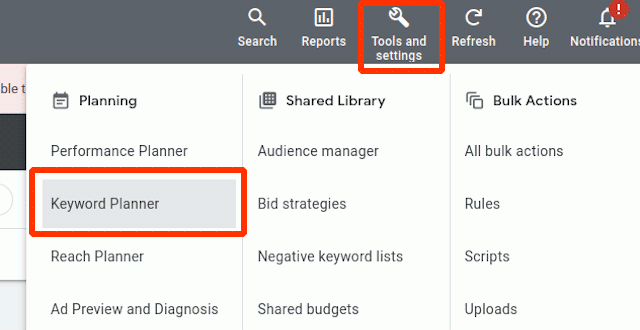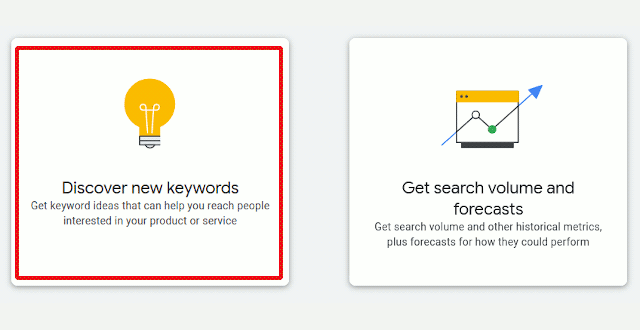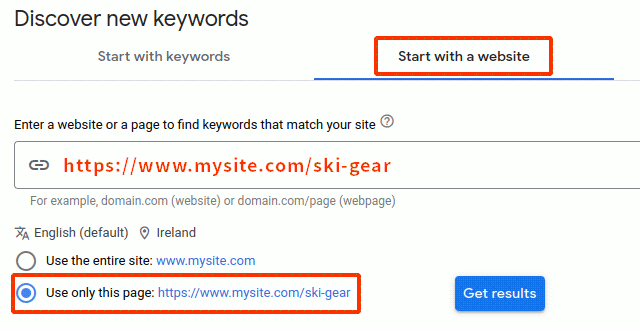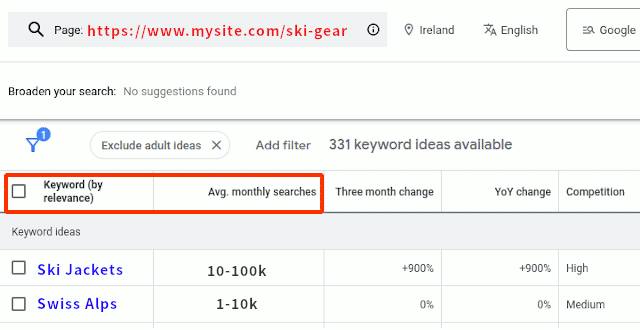Use the Keyword Planner for Better SEO
The Keyword Planner is a tool provided by Google Ads that can be used to find out what keywords you should optimise for if you're doing SEO on your website. SEO stands for Search Engine Optimisation, and that's about what keywords people type into a search engine to find what they are looking for. Keywords can include phrases like: best ski gear.
We've covered the basics of keywords and SEO in a previous article, but in brief, if one of your web pages ranks well for a particular keyword or keyword phrase, then that lucky webpage will come up in the search engine listings when someone enters a search for it.
We can use the Keyword Planner to find the best keywords for individual webpages on our website.
What's the 1-2-3?
- Identify a page on your website that you want to optimise for SEO eg
https://www.mysite.com/ski-gear - Put the url for that page into the Keyword Planner
- This will show you what keywords your page is actually being ranked for
- Are these keywords relevant? Do they have high search volume? Should we change those keywords?
Let's Begin
First log into your Google Ads account and follow the directions below. Know that you can use the keyword planner without running any ads.
Step 1
Go to Tools & Settings, choose Keyword Planner

Step 2
Choose: Discover New Keywords

Step 3
Choose: Start with a Website, then enter URL. Select: Use only this webpage. Click: Get Results

Step 4
Keyword results for the web page are displayed

It's much better to enter the url of an individual webpage here because the results we'll get back tell us what Google has identified as the main keywords for that individual webpage. If you put in the whole site url (eg https://www.mysite.com) you won't be able to understand which keywords best suit which webpages.
What to do with the Results
- Are there any obvious wrong keywords?
- Are there any obvious right keywords?
- Are there any obvious missing keywords?
Wrong Keywords
You'll see that we have 1 wrong keyword in the results for our page and that is Swiss Alps. The keyword is not relevant and has low monthly searches. Review the webpage and get rid of it, or replace it with a more relevant keyword.
Right Keywords
You'll see that we have 1 right keyword in the results for our page and that is Ski Jackets. It is also placed first in the results meaning that the keyword is highly relevant to the web page which is about ski gear. We could also use this keyword for Google Ads if we were running an Ads campaign.
Missing Keywords
Since this page is about ski gear, and we know that Ski Jackets ranks well, then why is there no result for Ski Pants? If we have both Ski Jackets and Ski Pants on the page, then why is Ski Pants not showing up as a keyword also? Or it may show up, but ranked much further down. This is usually because you have more occurrences of the words Ski Jackets then you do for Ski Pants. Learn more about optimising your web page for keywords here
This is not an exhaustive list, but the points below will help to make important keywords rank more highly on webpages.
- Put important keywords into Headings
- Put important keywords higher up on the page
- Put keywords into the alternative (alt) text of images
This option is available in all decent content management systems when you come to insert the image. The result will be a HTML image tag with alt text which Google really likes:<img href=“path-to-img” alt=“Ski Pants”> - If you're linking back to this page from another web page, then use it's main keyword in the Anchor (link) text
Poor use of keywords in link anchor text:For Ski Pants, Click here
Good use of keywords in link anchor text:Visit our Ski Pants page here
Stick to 1-2 important keywords (usually phrases) per page. Too many just confuses the search engines.
Check our your Competitor
If a competitor's web page is ranking better than yours for a particular keyword, you can always put the url of their webpage into the Keyword Planner. This can provide you with valuable insight as to what keywords you might want to change.
For more help on the Keyword Planner see: https://support.google.com/google-ads/answer/7337243?hl=en